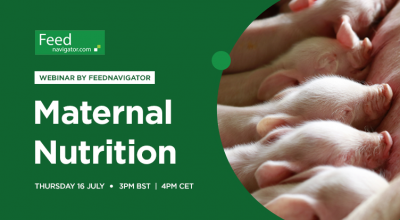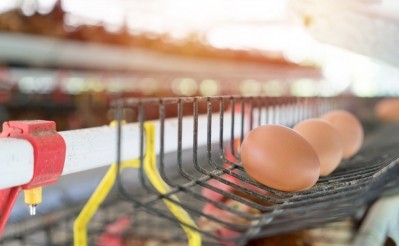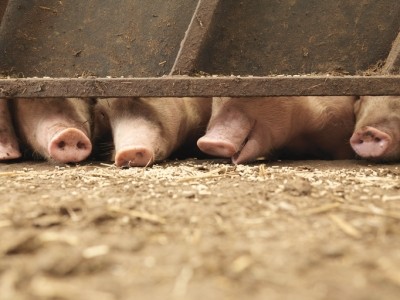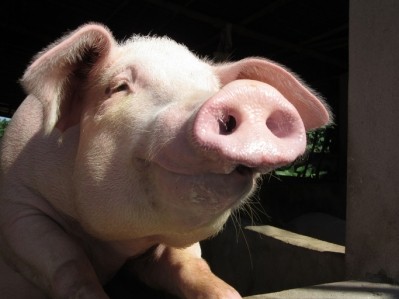Supplement sow, not piglet diets with feed additives
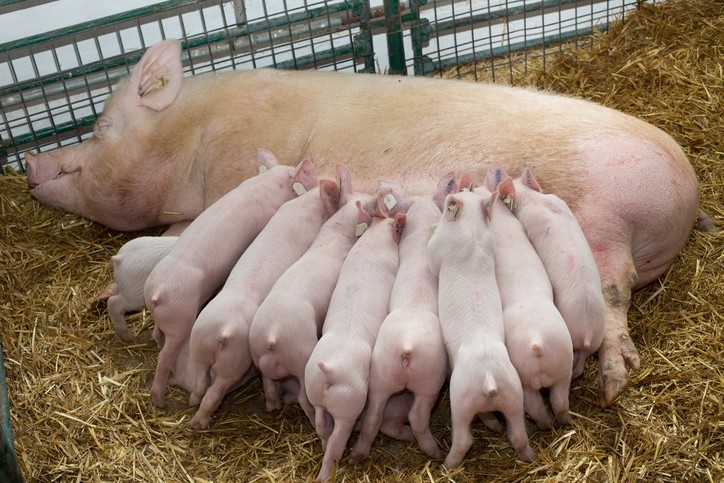
“Instead of providing piglets and growing pigs with feed additives to increase the progeny’s feed intake and growth, our latest study suggests that an alternative might be to provide gestating and lactating sows only with specific additives. This strategy might be more efficient and less costly for the breeders than providing additives to the whole herd,” David Val-Laillet, research director at NuMeCan, INRA and University of Rennes, told FeedNavigator.
Inroads International, a UK supplier of sensory feed additives, approached Dr Val-Laillet with a view to investigating the possibility that feed additives administered to sows might affect the development, growth and eating behavior of their offspring.
“It is well known that stressful environments or events, such as feed transition, can decrease feed intake and motivation. We have already published several papers on the use of feed additives to fight this problem, but these additives were provided to the piglets only,” said Val-Laillet.
In contrast, the premise of this latest study was to investigate the impact of early nutritional programming via the mother’s diet.
“Our hypothesis was that the active compounds in the mothers’ diet [i.e. feed additives] might reach the fetus through the placenta and/or amniotic fluid as well as the newborn piglets via the mothers’ milk, and have an impact on their early development and growth,” he explained.
Study design
The study used two feed additives, selected by Inroads International and combining different molecules known to have anti-stress, antibiotic and corexigenic effects, for example. These were labelled FA1 (limonene and cinnamaldehyde) and FA2 (menthol, carvone and anethole) and were included in the diet at 0.1% of complete feed content.
The effects of supplementation on sows’ feed intake, body weight, fat deposition and colostrum/milk composition were evaluated, as were the feed intake, growth and feed efficiency of piglets from birth to slaughter.
Results showed that piglets born from FA1- and FA2-supplemented sows had higher body weights, average daily gain and average daily feed intake than piglets born from control sows. By contrast, piglets that were never exposed to feed additives or only after weaning showed lower average daily gain and average daily feed intake – in other words, there was no benefit to including these feed additives at the concentrations tested in the piglets’ diet.
Surprising results
Val-Laillet said the researchers were surprised that giving the additives to both sows and piglets did not increase feed intake and growth.
“Even though we hypothesized a nutritional imprinting during the gestation and lactation period, we were surprised by the finding that the best strategy was to provide the additives to the sows only,” he said.
He said this result had interesting implications for pig husbandry, as instead of giving piglets and growing pigs additives, it might be sufficient to give the gestating/lactating sows the same (or different) additives to achieve satisfactory feed intake and growth levels.
“By feeding the sow with specific additives, we can ‘program’ its progeny’s metabolism or sensory abilities through nutrition and/or sensory imprinting, and increase its longer term feed intake and growth. There is potential for modifying the whole approach to the use of feed additives in animal husbandry, taking benefits from the early nutritional imprinting phenomenon.”
Source: J. Anim. Sci. 2018
Published online ahead of print: doi: 10.1093/jas/sky171
Title: “Long-term exposure to sensory feed additives during the gestational and postnatal periods affects sows’ colostrum and milk sensory profiles, piglets’ growth, and feed intake”
Authors: D Val-Laillet, J. S Elmore, D Baines, P Naylor, R Naylor
